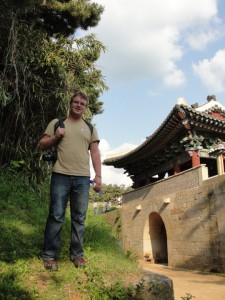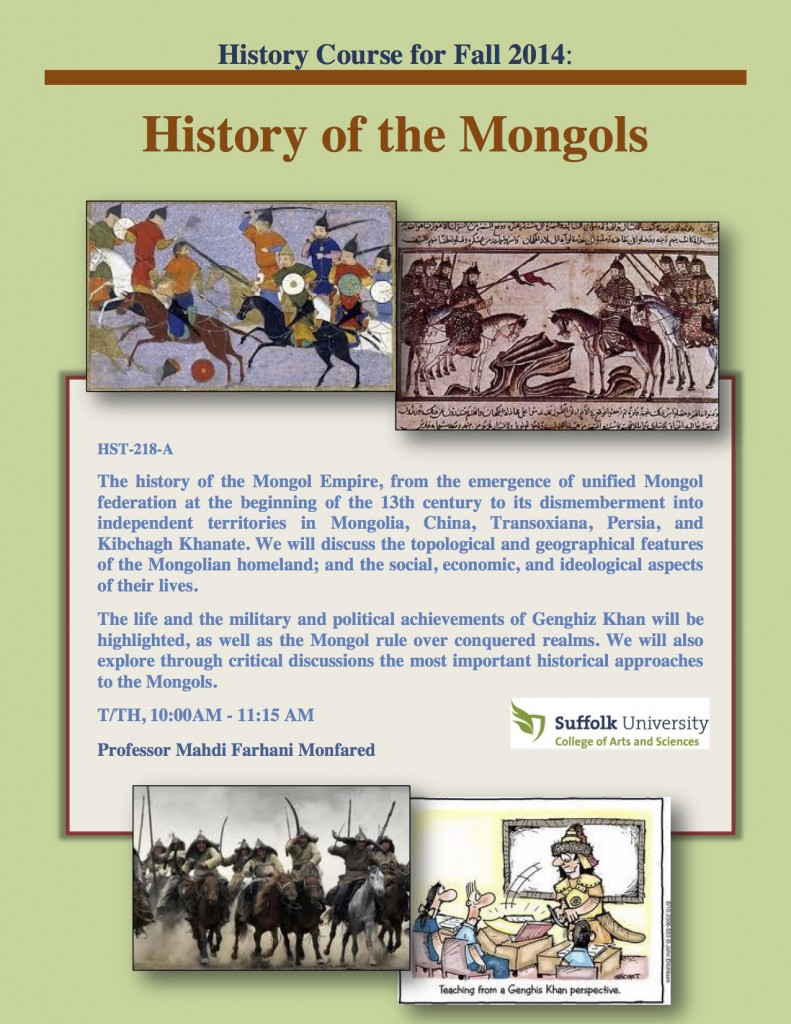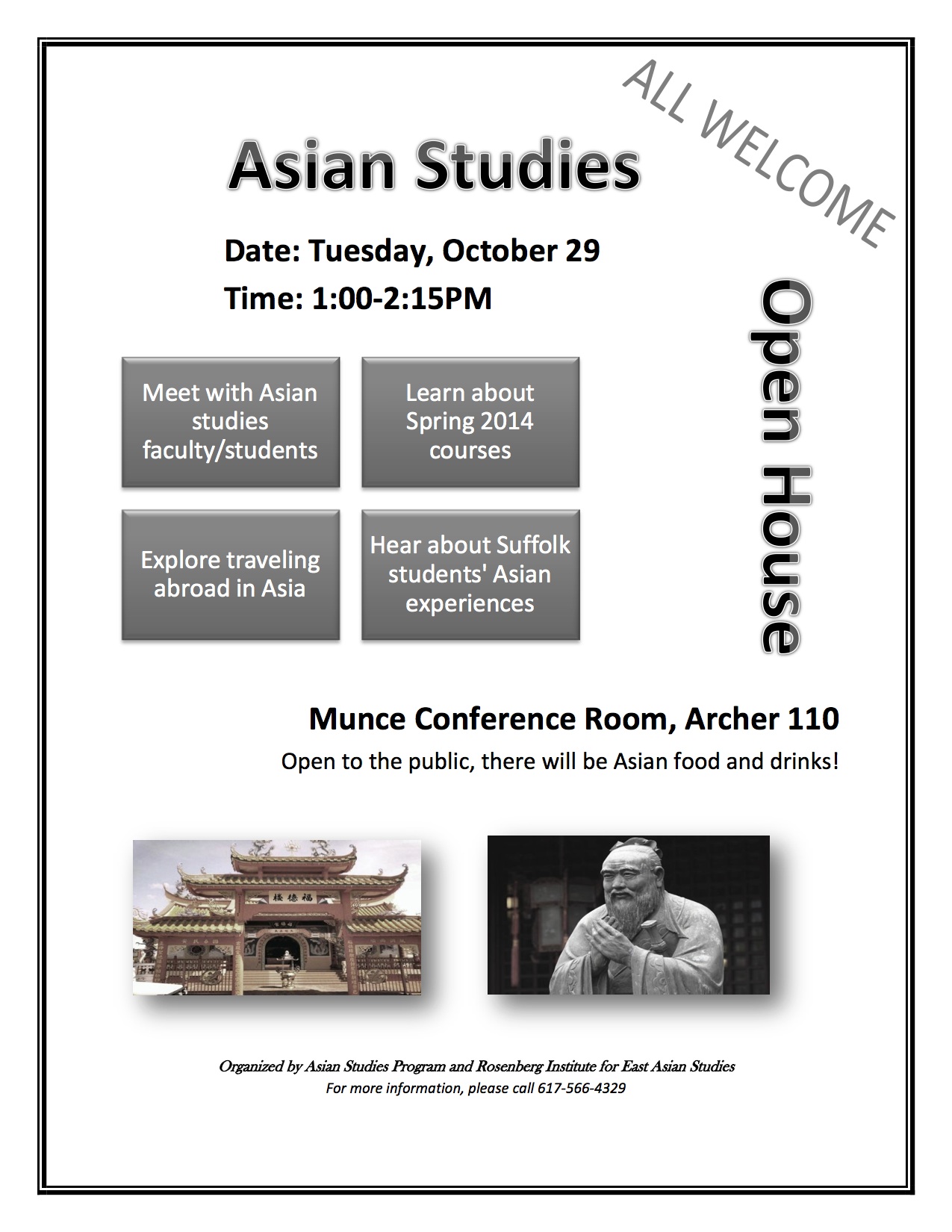The alien, the ghost, the post-human: Why fiction matters in contemporary China
Jane Hirshfield’s visit
Japan Job Fair
The International Conference on East Asian Colonialism and Literature
Ron’s report:
The academic conference I attended in Shanghai in December was titled The International Conference on East Asian Colonialism and Literature (東亞殖民主義與文學). Its focus was on Manchukuo in the 1930s and 1940s. I gave some opening remarks and then presented my paper on Japanese farmers who were sent to Manchuria, Chinese territory then occupied by Japan, in order to build Japanese villages in the countryside. That research should be published later this year.
Our host was East China Normal University (華東師範大學), a strong research university. In the photo below at the extreme right you can see the organizer, Dr. Liu Xiaoli (劉曉麗). She was a Visiting Scholar here at Suffolk two years ago, invited by the Rosenberg Institute and hosted by our Department of History. Our academic collaboration is a concrete example of the cooperation between Suffolk and East China Normal, and one of the positive outcomes of having international scholars on our campus.
When the photo was taken, she was showing us the campus and surrounding area, when we chanced on this seller of cotton candy at a children’s park. Wow! I love cotton candy. On the extreme left is Chen Shih (陳實), another conference organizer, and next to me is Professor Jonghyun Lee of Bridgewater State University, a conference participant.
Scholarship to learn Chinese or Japanese in Missouri!
Scholarships Available to Study Intensive Chinese or Japanese at Washington University in St. Louis this Summer with the ALLEX Foundation
Study Chinese or Japanese: http://www.allex.org/summer-chinese-or-japanese/
The WUSTL-ALLEX Intensive Chinese and Japanese Institute will offer intensive beginning level classes in Japanese and Mandarin Chinese at Washington University in St. Louis for seven weeks this summer. Each class meets for 2 hours per day, 5 days a week for 7 weeks. The course is intensive and requires 3-5 hours of mandatory self-managed study per day.
This program is designed to train students to speak and listen to Chinese or Japanese, and to introduce students to reading and writing the language. At the end of the course students will be expected to perform in all four skills—speaking, listening, reading and writing—at a basic level of proficiency. Students will not only learn to speak the language; they will also develop an understanding of Chinese or Japanese interpersonal behavior. The ultimate goal is to teach students not just to speak Chinese or Japanese, but to function successfully in Chinese or Japanese culture—to present yourself as an intelligent person in the culture using the language. Students will learn to speak and perform correctly in a variety of social situations.
Scholarships are available to qualified students.
Application Deadline: Rolling admissions; apply immediately. Scholarships under consideration now.
For more information please visit:
http://www.allex.org/summer-chinese-or-japanese/ or call 607.218.2130.
New course on Mongolian history
Asian Studies Open House 2013
Journalism graduate in South Korea
The Communication and Journalism blog has a post about a journalism graduate’s adventure in South Korea.

Here are some quotes from the blog:
Upon arriving in Seoul, Godfrey noticed major cultural changes; for example, US employers tend to frown upon mixing business with pleasure, but it seemed the opposite in Seoul.
“Even working at school, [in Korea] it’s common to go out with everybody and just drink and eat. Whereas in the US, I feel like it’s not very typical to go out and party with your boss; here it’s almost just part of work.” Godfrey explained that a typical office outing can lead to karaoke, called, Noribong. “You’re inevitably just pushed up to the front to sing.” He adds, “I avoid those places as often as I can.”
Godfrey has had his fair share of struggles with the language barrier, admitting he didn’t know one word of Korean prior to his arrival, but that’s part of the charm of being abroad, as is trying new cuisine.
“Recently, I was trying to order a pork dish because usually, almost every day, I end up getting kimchi soup. I believe (the waitress) was trying to tell me that they had no pork, but to me it just seemed like she was yelling at me. What came out were rice and about a million octopus tentacles,” recounts Godfrey, who doesn’t enjoy seafood. “That stuff happens. It happens pretty frequently. You just tell the story later.”
Simone Chun in Boston Herald
Simone Chun was quoted by Boston Herald in the article “Tough response just what N. Korea needs”. She said: “I think President Obama has wasted five years when he could have made a huge difference. North Korea wants normalization of diplomacy with the United States.”
The article can be accessed here.







